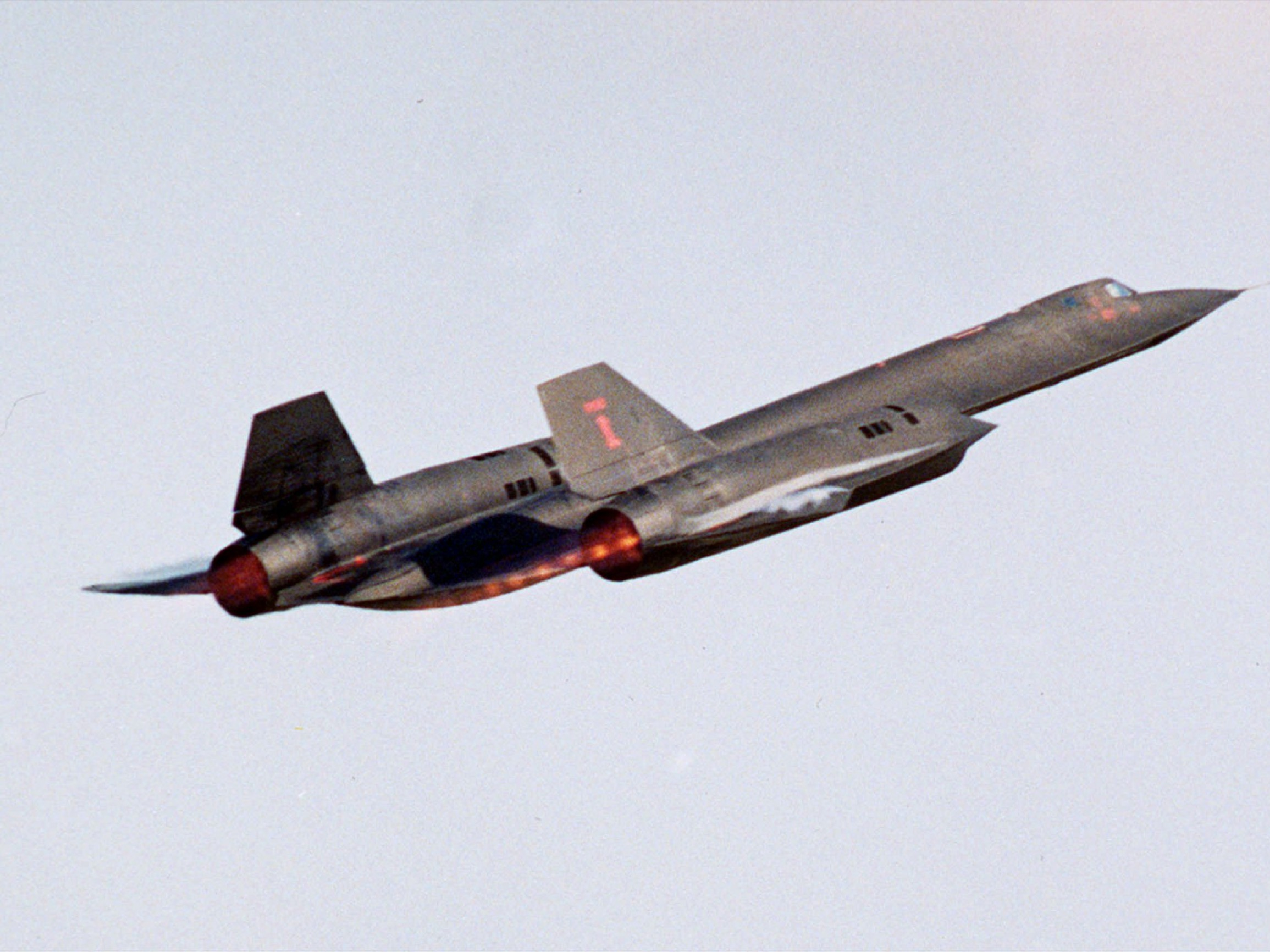- Elon Musk and Grimes recently said their favorite plane was the SR-71 Blackbird, citing its supersonic ability and lack of weapons.
- The revelation came as Grimes deciphered the meaning behind the name of her newborn baby, X Æ A-12, with “A-12” being the predecessor aircraft for the Blackbird.
- The Blackbird excelled in high-altitude surveillance during its tenure for the US Air Force, routinely reaching heights above 70,000 feet and flying about three times the speed of sound.
- Visit Business Insider’s homepage for more stories.
Elon Musk and his girlfriend, the singer Grimes, have given birth to their first child. While the pronunciation of the boy’s name, X Æ A-12, has left most confused, the singer outlined how the couple arrived at the unique name.
In a tweet, Grimes described the meaning behind each character and said the last few characters, “A-12,” referred to the Lockheed A-12, a short-lived spy plane employed by the US Central Intelligence Agency in the 1960s.
The A-12 was the precursor to the better-known SR-71 Blackbird, which Grimes and Musk say is their favorite plane. The Blackbird became prominent during the Cold War and was purely for high-altitude surveillance, as it had no offensive or defensive weapons.
It was the military equivalent of the Concorde, as its two massive rocket-like engines could propel the bird into supersonic flight at some of the highest altitudes in Earth’s atmosphere.
Take a closer look at the jet that the duo calls their favorite.
Before there were camera-equipped satellites, the US relied on airplanes to provide surveillance photos. One of the first aircraft built for the purpose was the U-2 Dragon Lady, capable of flying upward of 70,000 feet.

The aircraft was quite capable but had a problem: It could be shot down, as shown when Francis Gary Powers' U-2 was shot down in 1960 over Russia. President Dwight Eisenhower, recognizing this flaw, commissioned a new spy plane capable of evading enemy missiles.

Source: Lockheed Martin
That's where the SR-71 Blackbird came in, a supersonic spy plane with emphasis on speed and stealth.

The defense aerospace manufacturer Lockheed was ultimately chosen to build the aircraft through Skunk Works, a code for the firm's Advanced Development Division. The aviation pioneer Clarence "Kelly" Johnson headed the project.

Source: Lockheed Martin and Central Intelligence Agency
First came the A-12 Oxcart, a single-seater spy plane that saw missions in Vietnam and North Korea. Though it was successful, fears arose that Soviet technology was catching up and could render the aircraft obsolete.

Source: Central Intelligence Agency and Lockheed Martin
The jet was commissioned by the Central Intelligence Agency. Here's a model of it that sits outside its headquarters in Langley, Virginia.

Source: Central Intelligence Agency
From the A-12, the two-seater SR-71 Blackbird was produced for the US Air Force. Compared with its predecessor, the Blackbird had more radar-reflecting surface and was less easily detected by enemy antiaircraft.

Source: Lockheed Martin
Two crew members would command the bird, with only pilot in the front and a reconnaissance and navigation officer in the back. The crew would wear spacesuit-like uniforms as they embarked high in the upper altitudes.

Here's the one-man cockpit of the high-speed spy plane.

Powering the spy plane were two Pratt & Whitney J58 engines that resembled rockets rather than airplane engines. They enabled the high altitude, supersonic flights the Blackbird would undertake.

Source: Lockheed Martin and NASA
The jet could fly at speeds of over 2,000 mph, about three times the speed of sound, at altitudes greater than 80,000 feet. When in danger, the pilot could simply engage the afterburners and cruise away from any threat — including a missile.

Source: Lockheed Martin
The speed and altitude ceiling of the Blackbird meant it could cross continents in just a few hours. Pilots navigating by sight couldn't rely on ground features such as roads, depending instead on mountains and major coastlines.

Source: Lockheed Martin
When it ran low on fuel, a tanker would be sent in to give it a top-off, allowing it to stay in the air for long periods. Blackbirds would often depart with minimum fuel and then be refueled once airborne before heading to a mission zone.

Source: Lockheed Martin
Titanium was the material of choice for the aircraft, as the altitude and speed conditions that the Blackbird would operate in would create temperatures levels in the thousands of degrees.

Source: Lockheed Martin
The first Blackbird flew in 1964 and began flying for the US Air Force in 1966, lasting nearly 30 years before retiring in 1990. The extensive costs associated with the aircraft, enhancements in satellite technology, and the impending collapse of the Soviet Union all contributed to its retirement.

Source: National Museum of the Air Force
The Blackbird was one of the most secretive aircraft in the Air Force's fleet, as it soared at more than double the altitude of most airliners. Its capabilities, however, proved vital to the US intelligence community.

Like most supersonic aircraft, it was ahead of its time. No other aircraft has managed to take its place.

Grimes wrote in her tweet that she and Musk were fans of the aircraft because it featured no weapon. It was harmless in and of itself.

Source: Twitter
The only weapons the Blackbird had were its cameras, which provided invaluable intelligence for troops and intelligence agencies on the ground.

NASA also used the aircraft for testing, picking up where the Air Force left off until 1997, making it one of the longest-serving spy planes in the US stable.

Source: NASA
Musk is a noted space and aerospace enthusiast. His company SpaceX aims to build new rockets meant to take humans to space.

It's perhaps no surprise that the eccentric entrepreneur would consider such a revolutionary plane as his favorite.


